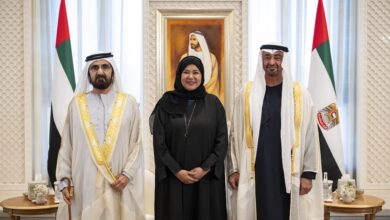
FIFA Selects Amal Jamal for U-17 Women’s World Cup Officiating
FIFA’s decision to select Amal Jamal as a referee for the upcoming U-17 Women’s World Cup marks a significant milestone in women’s football. This move not only showcases FIFA’s commitment to diversity in officiating but also highlights the growing influence of female referees in international football competitions. Amal Jamal’s appointment is a testament to her skills and experience in professional football, reflecting the progress made in women’s sports.
The U-17 Women’s World Cup, set to take place in the Dominican Republic, will provide a platform for young talents to shine on the global stage. This article delves into Amal Jamal’s background, exploring her journey from the UAE Football Association to her current role as an international referee. It also examines FIFA’s efforts to promote gender equality in football and the impact of this tournament on the future of women’s football. Additionally, we’ll take a closer look at the host country and the significance of this event for women’s sports worldwide.
Profile of Amal Jamal
Personal background
Amal Jamal, an Emirati referee, has made history as the first woman to officiate a professional men’s football game in the UAE. Her appointment showcases the progress in women’s sports and the Emirati federation’s commitment to equality. Jamal’s journey in refereeing required overcoming cultural barriers, as she had to discuss her career choice with her conservative family before pursuing it.
Sporting family influence
Jamal comes from a sporting family, with her father being a former player and her brother Mohamed currently playing for Al Ain. This background has been instrumental in shaping her career. Her family has become her biggest supporters, offering analysis, criticism, and praise after each game she referees.
Career highlights
Jamal’s most significant achievement to date is her selection by FIFA to officiate at the upcoming U-17 Women’s World Cup in the Dominican Republic. This appointment represents a major step towards her dream of refereeing at the Women’s World Cup, a goal she is determined to achieve.
FIFA’s Commitment to Diversity in Officiating
FIFA has taken significant steps to promote diversity and inclusion in football officiating. The organization’s Head of Refereeing, Women, Kari Seitz, has been instrumental in driving change towards gender equality in refereeing. FIFA has implemented various initiatives to increase the representation of women in officiating roles, including promoting their qualities and supporting their development.
Inclusion initiatives
FIFA has introduced anti-discrimination training and monitoring systems to create a more inclusive environment. These efforts include tailor-made training on human rights, anti-discrimination, and cultural sensitivity for all relevant workforce areas. The organization has also implemented an Anti-Discrimination Monitoring System to identify and report discriminatory incidents during matches.
Gender balance in refereeing
In recent years, FIFA has made significant progress in promoting gender balance in refereeing. Women referees have been appointed to top competitions in all confederations, including the UEFA Champions League and FIFA Club World Cup. The organization has also seen an increase in the number of women promoted to top leagues worldwide, demonstrating its commitment to gender equality in officiating.
Global representation
FIFA strives to ensure global representation in its refereeing pool. The organization invites national federations to nominate top-ranked, medically-qualified referees and assistant referees for FIFA appointments. This process considers factors such as player population, league structure, and the development of each nation’s referee program, ensuring a diverse and inclusive group of officials for international competitions.
U-17 Women’s World Cup in the Dominican Republic
The Dominican Republic is set to host its first FIFA tournament, the U-17 Women’s World Cup, from October 16 to November 3, 2024. This eighth edition of the tournament will feature 16 nations competing across two venues: the Felix Sanchez Stadium in Santo Domingo and the Cibao University Stadium in Santiago de los Caballeros. The event promises to showcase the world’s best young female footballers and leave a lasting impact on the host country’s sporting landscape. FIFA officials have expressed confidence that the passion and joy of the Dominican Republic will inspire future stars of football throughout the tournament.
Amal Jamal’s selection as a referee for the U-17 Women’s World Cup is a big step forward for women in football. Her journey from breaking barriers in the UAE to officiating on the world stage shows how far women’s sports have come. FIFA’s efforts to promote diversity in refereeing are paying off, creating more opportunities for talented officials like Jamal to shine.
The upcoming tournament in the Dominican Republic is set to be a showcase of young talent and a chance to inspire future stars. It has an impact on not just the players and officials involved, but also on the host country and women’s football worldwide. As the beautiful game continues to grow and evolve, events like this play a crucial role to develop the sport and bring more attention to women’s football at all levels.





